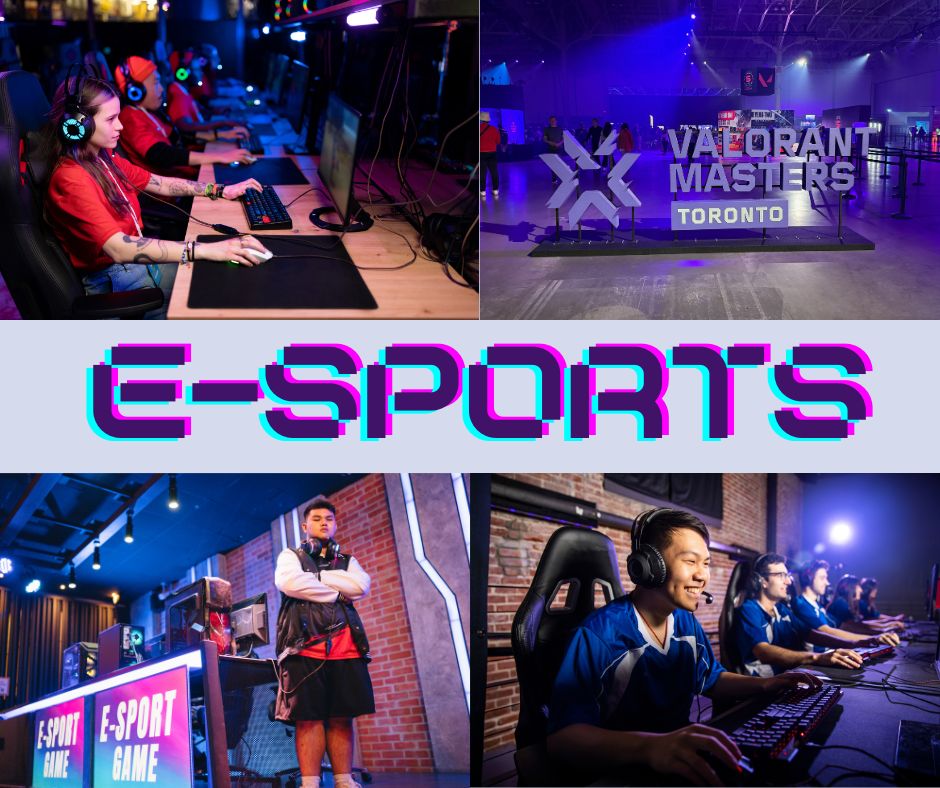
Nontraditional Colleges: How to Choose the Right Alternative College for You
Posted by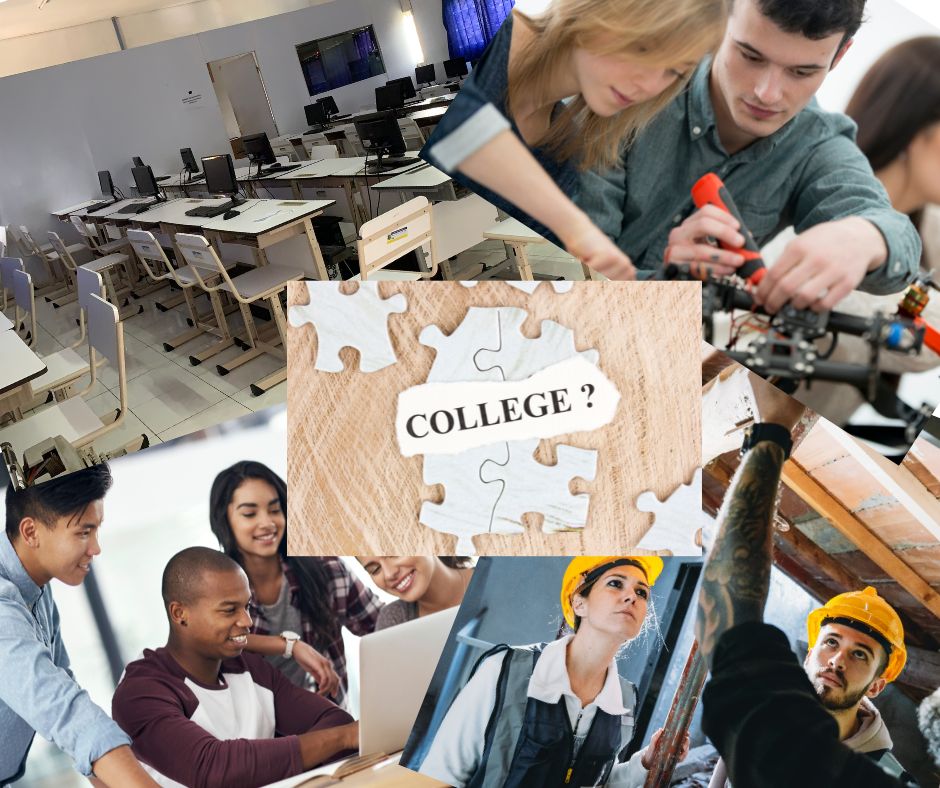
Navigating the world of higher education while you’re still balancing high school classes, extracurriculars, and a social life isn’t easy. It doesn’t help if you’re a first-generation college student trying to figure things out on your own, or that the language around higher education has evolved over several decades. If you’ve gotten emails, postcards, or information from your guidance counselor about life after graduation, you may have seen mention of nontraditional colleges.
But what the heck are nontraditional colleges? Are they like traditional colleges, or are they university alternatives? Something else entirely? And why does everything have to feel so confusing!!
We get it. Keep reading to learn more about the difference between traditional and nontraditional colleges (and nontraditional students, too!), and how to decide whether attending college even makes sense at all, because there are other options besides college that might have more appeal, too.
Traditional vs. nontraditional colleges
Ok, let’s talk about the differences between traditional and nontraditional colleges.
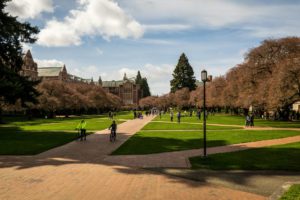
A conventional college experience probably looks a lot like what you’ve seen in the movies or on TV. You’ll likely live in a dorm on campus or in nearby student housing. This residential arrangement is a huge part of your college experience; it’s where you’ll form lifelong friendships, create study groups, check out the social life, and probably do some crazy things (like borrowing trays from the dining hall to go sleigh riding on the big hill after a snowfall… at midnight). Maybe you’ll go out for sports or band, pledge a sorority or fraternity during Rush week, or join one of the dozens (hundreds!) of clubs.
Most traditional colleges structure their academic calendar around a fall and spring semester. Some schools have trimesters or quarters, which may include a winter or summer term. Full-time students typically take 12-18 credits per semester, which usually works out to 4-6 classes. A key feature of college and university academic programs? The wide variety of classes and subjects. You’ll be able to explore foundational courses in different fields, take electives based on your interests, and get granular in your chosen major, whether it’s the arts, humanities, sciences, or engineering.
Alternative colleges share many of the same characteristics as traditional colleges, but these schools are designed for students who may have different needs or preferences. You may still live on campus and participate in the school community through activities, clubs, sports, or extracurriculars. But these colleges put a twist (or two or three!) on what most people think of when it comes to higher education.
And of course, there are other options besides a four-year college, such as community colleges, trade schools, or vocational-technical education. Let’s take a quick look.
Community colleges
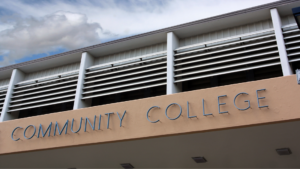 These institutions offer a smart, cost-effective way to start your higher education journey. They cost significantly less than traditional colleges and often have evening, weekend, and online classes to fit around work schedules. Many have transfer agreements with four-year universities, so you can complete your first two years at community college and then transfer to finish your bachelor’s degree — potentially saving thousands of dollars.
These institutions offer a smart, cost-effective way to start your higher education journey. They cost significantly less than traditional colleges and often have evening, weekend, and online classes to fit around work schedules. Many have transfer agreements with four-year universities, so you can complete your first two years at community college and then transfer to finish your bachelor’s degree — potentially saving thousands of dollars.
Trade schools and vocational education (vo-tech)
These schools have seen an increase in enrollment recently, and for good reason. These university alternatives focus on hands-on training for real-world applications in fields like:
- Construction and skilled trades: Electricians, plumbers, HVAC technicians, welders
- Healthcare: Dental hygienists, medical assistants, pharmacy technicians, veterinary technicians
- Information technology: Cybersecurity specialists, network administrators, computer programmers
- Automotive and transportation: Aircraft mechanics, automotive technicians
The best part? These programs typically take six months to two years to complete, getting you into the workforce faster with valuable, in-demand skills.
Nontraditional colleges
Nontraditional colleges are still colleges, but a variation on a theme, and their programs may look different from your (and your family’s) mental picture of what college is supposed to be like. Alternative colleges offer learning experiences that swerve (sometimes dramatically) away from the conventional. What a great potential fit if you’re a self-starter or prefer learning outside a traditional classroom setting! You might find programs that:
- Let you design your own curriculum — perfect if you’re into the arts but also fascinated by engineering, for example.
- Focus on interdisciplinary studies — think environmental science, which combines biology, chemistry, geology, and physics, or forensic science, which merges disciplines like chemistry, biology, physics, and criminal law.
- Prioritize hands-on, project-based learning, with a heavy emphasis on labs, studios, and maker spaces where you conceptualize and create from the beginning.
Worcester Polytechnic Institute
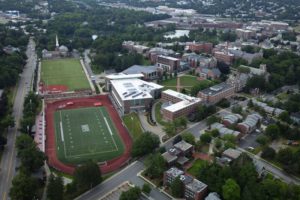 For example, Worcester Polytechnic Institute (WPI) takes a very nontraditional approach to college education. Its curriculum centers around a project-based education, where students complete multiple projects as part of their degree requirement, rather than one massive final project. The school doesn’t award failing grades (A, B, C and NR (no record)), which encourages students to step outside their comfort zones (and area of study) to try something different. The academic calendar is divided into 7-week terms, where you take only three classes per term, allowing you to really focus on and engage with each one.
For example, Worcester Polytechnic Institute (WPI) takes a very nontraditional approach to college education. Its curriculum centers around a project-based education, where students complete multiple projects as part of their degree requirement, rather than one massive final project. The school doesn’t award failing grades (A, B, C and NR (no record)), which encourages students to step outside their comfort zones (and area of study) to try something different. The academic calendar is divided into 7-week terms, where you take only three classes per term, allowing you to really focus on and engage with each one.
Maharishi International University
Maharishi International University, in Fairfield, IN, focuses on consciousness-based education. This approach goes beyond the standard academic curriculum to include personal growth and well-being as core components of a degree. Its mission is to “nurture the whole person: consciousness, mind, body, and relationships.” The transcendental meditation (TM) technique is a daily required component of the educational model, not as an optional elective but as a central, foundational element of the university’s pedagogy.
College of the Atlantic
 Bar Harbor, ME, is home to College of the Atlantic, which offers just one interdisciplinary field: human ecology. This field serves as the foundation for all academic exploration, from arts and sciences to the humanities and social sciences. Students have the freedom to create their own educational path, building a course of study based on personal interests and combining different disciplines in a way that’s meaningful to them. The university’s philosophy is that education should lead to action and takes an approach rooted in an experiential, hands-on model that encourages students to make a difference in the world while still in college.
Bar Harbor, ME, is home to College of the Atlantic, which offers just one interdisciplinary field: human ecology. This field serves as the foundation for all academic exploration, from arts and sciences to the humanities and social sciences. Students have the freedom to create their own educational path, building a course of study based on personal interests and combining different disciplines in a way that’s meaningful to them. The university’s philosophy is that education should lead to action and takes an approach rooted in an experiential, hands-on model that encourages students to make a difference in the world while still in college.
What is a nontraditional student?
In 2024, over 19 million students enrolled as undergraduates. Of those students, fewer than half (40%) fell in the “traditional” age range of 18-20. The percentage of nontraditional students continues to increase. These students aren’t just older adults returning to school. But 69% of college students work while studying, balancing academics with full or part-time employment.
As a high school student, you could become a nontraditional student if you:
- Take a gap year before starting college
- Work part- or full-time while attending school
- Choose community college over a four-year university
- Pursue trade schools or vocational training
- Have family responsibilities or other commitments
- Take fewer than 12 credits per term (part-time student)
- Earn a GED or high school certificate of completion instead of a diploma
Nontraditional students may fit more than one of the criteria, and they are a diverse, growing group. According to the National Center for Education Statistics, about 74% of all undergraduates have at least one non-traditional characteristic. Beyond the criteria previously mentioned, these students may also be financially independent from their parents, have one or more disabilities, be a veteran, or be pursuing a non-degree program or certification.
Unlike many traditional students who attend college immediately after high school, nontraditional students are often highly motivated with clear, career-focused goals. They may be seeking to advance in their current job, change careers entirely, or gain new skills to stay competitive.

Challenges and support systems
These students often face unique challenges, like inflexible schedules, limited financial support, and a lack of services tailored to their needs. Besides financial constraints and multiple responsibilities to juggle, nontraditional students may feel a sense of isolation when surrounded by peers who are younger or in a different life stage. Finding a sense of community can prove challenging, as many campuses gear social activities toward residential, full-time students.
To address these challenges, many institutions are developing tailored support systems, which include:
- Flexible scheduling and delivery, with online, evening, and weekend classes that allow students to fit education into their busy schedules.
- Prior learning recognition, with some colleges granting credit for work experience or military service, which can reduce the time and cost required to earn a degree.
- Targeted resources, with universities dedicating offices, scholarships, and clubs for nontraditional students, veterans, or student-parents to help them find community and access relevant support services.
What to expect from an alternative university?
The best thing about education after high school? There’s no one-size-fits-all approach. You have many options, depending on your goal and current life stage. Alternative universities offer educational experiences that deliberately break from the traditional model of a fixed, lecture-based curriculum and standard campus life. Instead, they focus on unique academic philosophies, flexible structures, and highly personalized learning.
Many alternative universities center their curricula on hands-on, project-based work, with the philosophy that you learn best by doing. You might work on team-based projects that address real-world problems, designing a new product, conducting applied research for a local company, or building a creative installation. These projects often replace exams as the main way for you to show your understanding.
While most universities offer a wide array of majors, nontraditional schools encourage you to build your own degree path or focus on a single, broad field that integrates multiple disciplines. Instead of choosing from a fixed list of majors, you work with a faculty advisor to design your own curriculum based on your interests and goals. This approach encourages you to completely personalize your education in a way that doesn’t fit neatly into a single department, which is totally okay.
Nontraditional colleges cater well to nontraditional students, offering flexible formats to accommodate work, family, and other life commitments. These institutions prioritize what you know over how long you spend in a classroom. You advance by demonstrating mastery of a subject or skill — often through portfolio assessments — rather than by completing a course or, in some cases, taking a test.
Consider online and self-paced education, for example. The internet has revolutionized learning opportunities. You can now access high-quality education from anywhere with a wifi connection. Online courses offer incredible flexibility, allowing you to learn at your own pace while managing other responsibilities. Many classes are free or low-cost, making them perfect for exploring different interests or building different skills.
How to choose the right alternative college for you
Some students, especially nontraditional students, face a distinct set of challenges that can make their college experience different from that of more traditional students. While all students must manage their time and navigate academic life, non-traditional learners do so while balancing significant external responsibilities. Whether you’re a nontraditional student or not, here are a few suggestions to help you choose the best alternative college for you.
First, honestly evaluate your current life circumstances to see whether (and how) a new program can fit into your life.
- Balance your responsibilities. Look for programs that offer flexible scheduling, like night or weekend classes, education online, or hybrid formats.
- Identify your educational “why.” Articulate how this degree or credential will help you advance in your career or enter a new professional field.
- Consider your learning style. While many nontraditional colleges offer online formats, some use different teaching methods, such as hands-on projects, Socratic discussions, or interdisciplinary approaches. Make sure the school’s teaching philosophy aligns with how you learn best.
Nontraditional schools can vary dramatically in their cost, format, and grading. When you tour the school, visit its website, or talk to an admissions officer, ask:
- What does academic support look like? Find out what resources the school offers to help students succeed. Do those resources include specialized academic advising? Tutoring services? Workshops on study skills and time management?
- What student services are available? Look beyond the typical offerings. Does the school provide resources like on-campus child care? Transportation assistance? Help for those experiencing food or housing insecurity?
- Does the school recognize prior experience? Look for programs that acknowledge learning gained outside a traditional academic setting. Does the school have options like the College-Level Examination Program (CLEP)? Prior Learning Assessment (PLA)? Does it award credit for military training?
- What are the financial aid and payment options? Does the school have financial officers who can offer guidance and help you figure out what financial aid you might qualify for? Are there payment options like plans, employer partnerships, scholarships, or tuition credits/reductions?
7 questions to ask yourself about attending nontraditional colleges
Choosing college is a big decision, and even more so when you’re considering a path that doesn’t fit the traditional mold. Whether you’re a high school student looking for a unique fit or an adult considering a return to school, asking yourself the right questions will help you find a program that aligns with your learning style, life, and career goals.
- How do I learn best? Are you a hands-on learner who loves projects and direct experience, or do you prefer lectures and reading?
- Do I want to specialize or explore? Do you have a specific passion you wish to pursue, or are you interested in a program that encourages you to design your own major by combining different fields?
- Am I a self-starter? Many alternative programs offer a lot of independence. Are you disciplined enough to manage your own projects and pace, or do you need more structure and deadlines?
- How do I prefer to be evaluated? Is the focus on exams and papers, or will your success be measured by a portfolio of work, projects, and practical skills?
- Can I afford it? In addition to tuition, what other fees must you pay for things like technology, materials, or special programs? Do you qualify for financial aid? Do you have the time to research and apply for scholarships?
- How will this program prepare me for a job? Does the curriculum include internships or co-ops?
- Does this degree meet my goals? Will this program give you the specific skills and knowledge you need for your career, or does it provide a more general, philosophical education?
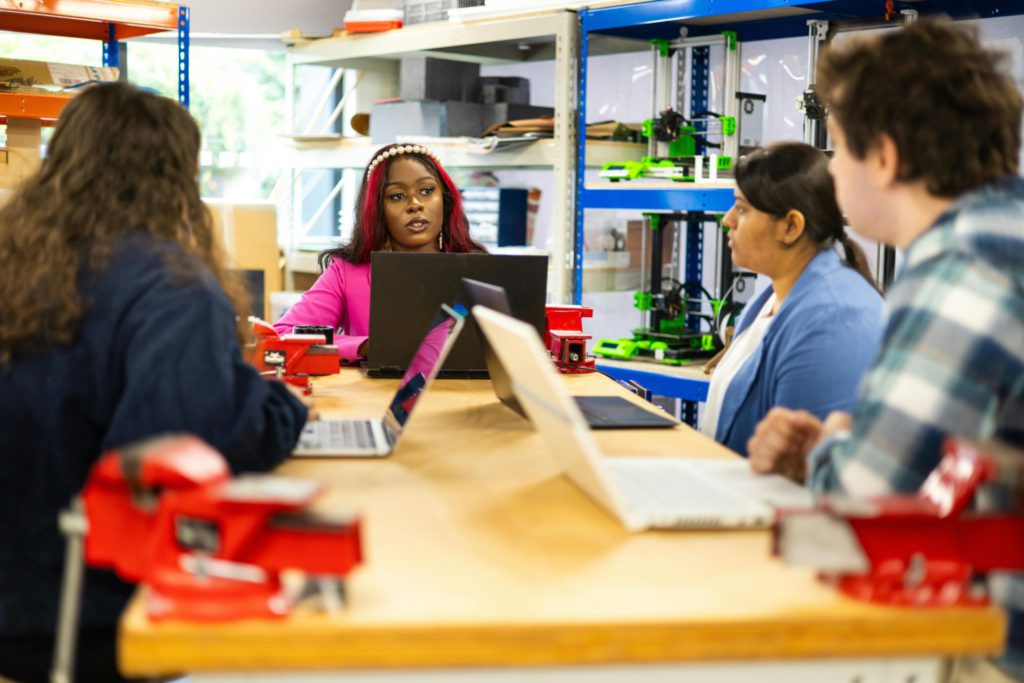
Nontraditional colleges and you - final thoughts
Whatever journey you begin after high school, know that you’ve got lots of options. Here are a few things to remember:
- There’s no one “right” way to do college. The traditional path works great for many, but nontraditional colleges and universities offer valid, exciting alternatives. They aren’t “less than” — they’re just different.
- Alternative colleges champion customization. If you’re a hands-on learner, a self-starter, or someone who wants to design a one-of-a-kind education, attending a nontraditional college might be perfect.
- The “non-traditional student” is the new norm. You don’t have to be a certain age or live a certain way to be a successful college student. Many schools have adapted to support those who are working, have other responsibilities, or have unique financial situations.
- Your experience and goals matter. The most important step in this process is asking yourself honest questions about who you are and what you want. Don’t just follow the crowd; do something that aligns with your personal and professional goals, whether that’s attending a nontraditional school or even looking at other options besides college.
Blog Categories
- Career Advice
- College Admissions
- Colleges & Universities
- Financial Aid and Scholarships
- For Counselors
- For Parents
- For Students
- Gap Years
- Mental Health and Wellness
- Online Learning
- Performing and Visual Arts
- STEM Majors and More
- Summer Programs
- Teen Volunteering
- Trade & Vocational Schools
- Tutoring & Test Prep

Organization with listings on TeenLife? Login here
Register for Free
We’re here to help you find your best-fit teen-centered academic and enrichment opportunities.
Forgot Password
"*" indicates required fields


